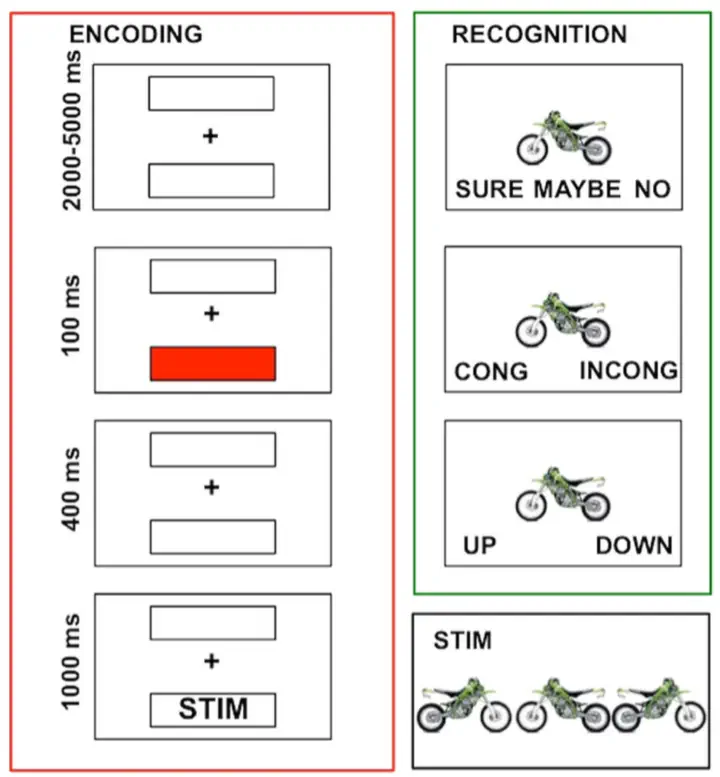Interaction between attentional systems and episodic memory encoding: the impact of conflict on binding of information

Abstract
Episodic memory (EM) is defined as a long-term memory system that stores information that can be retrieved along with details of the context of the original events (binding). Several studies have shown that manipulation of attention during encoding can impact subsequent memory performance. An influential model of attention distinguishes between three partially independent attentional networks: the alerting, the orienting and the executive or conflict resolution component. To date, the impact of the engagement of these sub-systems during encoding on item and relational context binding has not been investigated. Here, we developed a new task combining the Attentional Network Test and an incidental episodic memory encoding task to study this issue. We reported that when the alerting network was not solicited, resolving conflict hindered item encoding. Moreover, resolving conflict, independently of the cueing condition, had a negative impact on context binding. These novel findings could have a potential impact in the understanding EM formation, and memory disorders in different populations, including healthy elderly people.